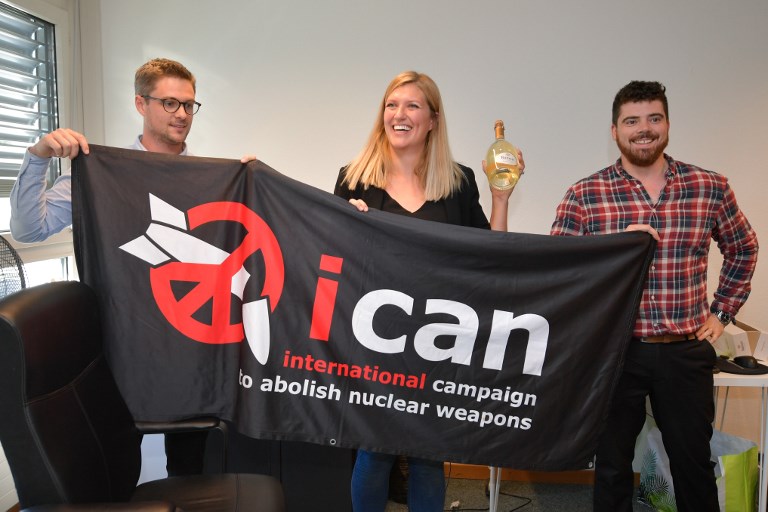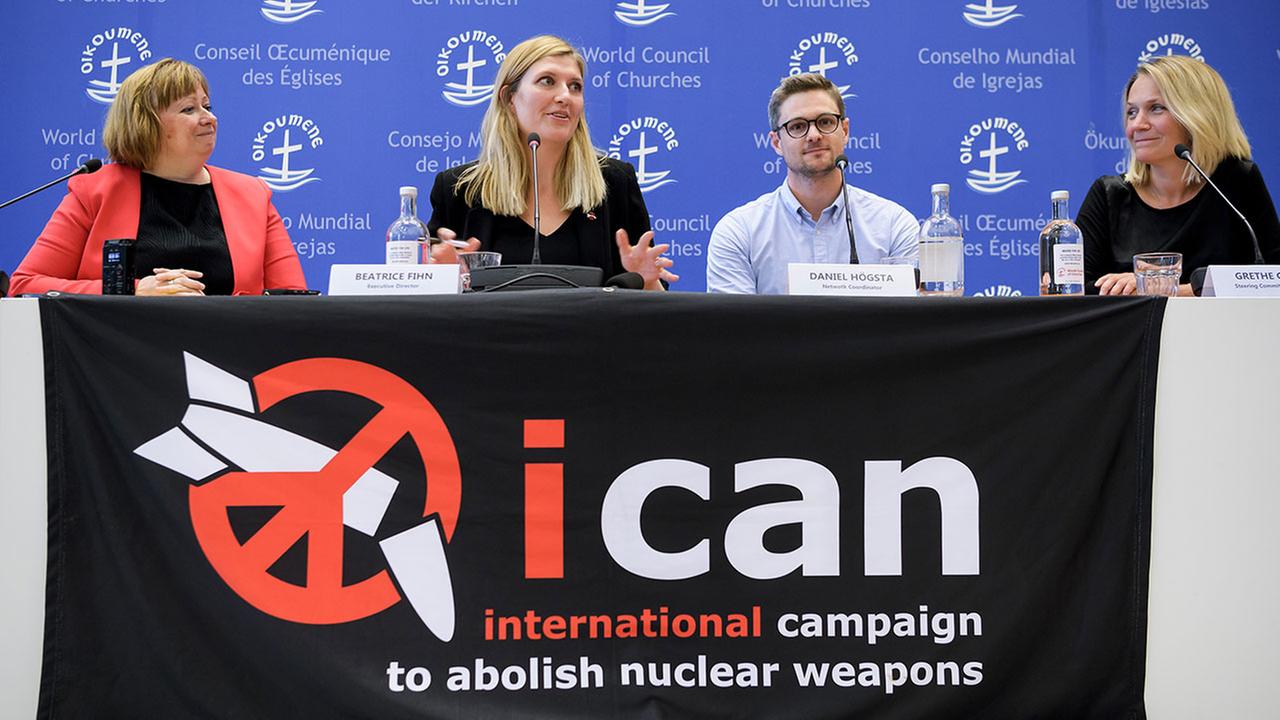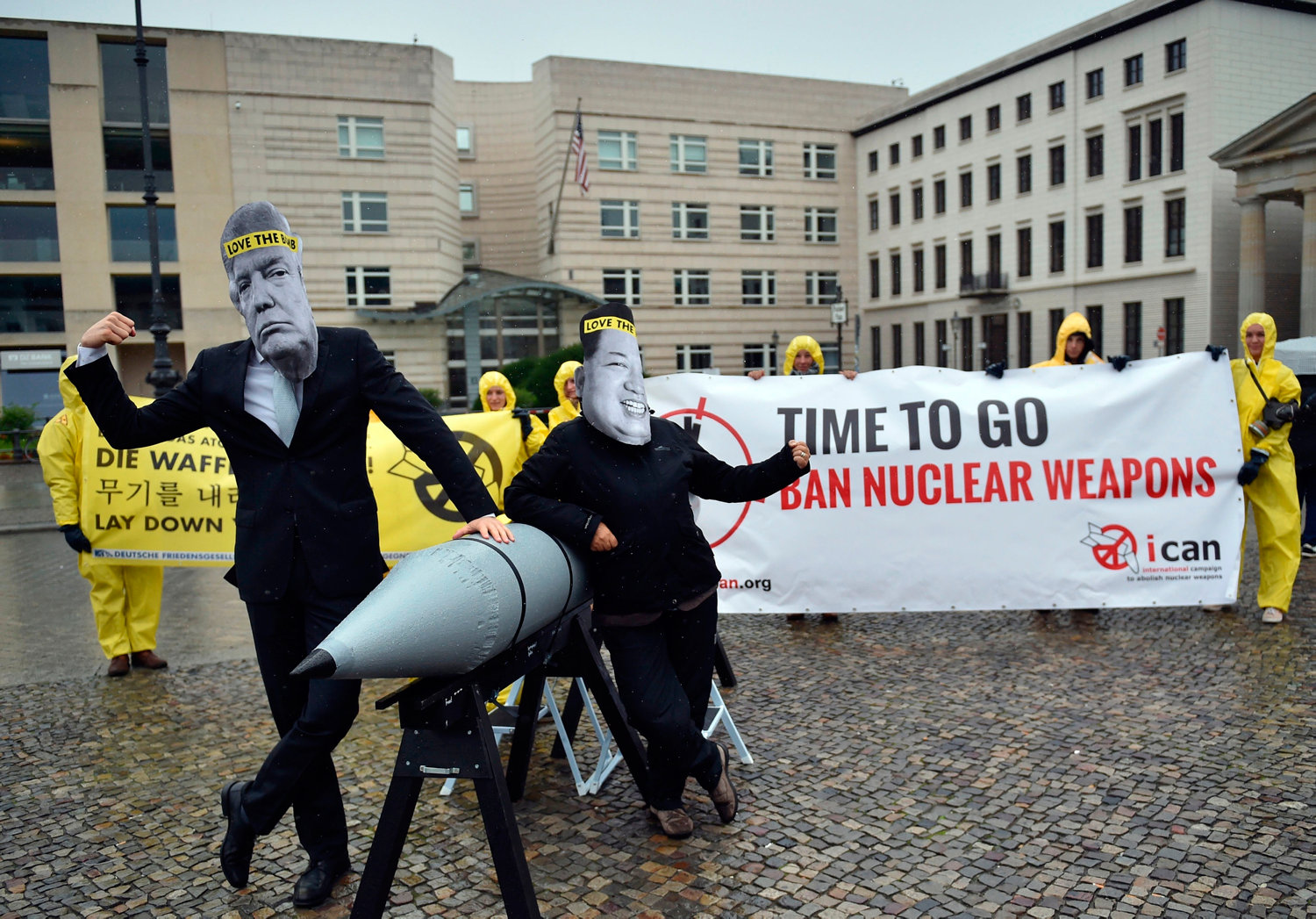
The Australian-based International Campaign to Abolish Nuclear Weapons, Ican, has been awarded the 2107 Nobel Peace prize.
The chair of the Norwegian Nobel Committee, Berit Reiss-Andersen, on Friday, October 6, 2017 said the award had been made in recognition of the group’s work “to draw attention to the catastrophic humanitarian consequences of any use of nuclear weapons and for its ground-breaking efforts to achieve a treaty-based prohibition of such weapons”.
BREAKING NEWS The 2017 Nobel Peace Prize is awarded to the International Campaign to Abolish Nuclear Weapons (ICAN) @nuclearban #NobelPrize pic.twitter.com/I5PUiQfFzs
— The Nobel Prize (@NobelPrize) October 6, 2017
The announcement of the little-known anti-nuclear weapons advocacy group, came as a surprise to many. Most of the pre-announcement chatter had been predicting the winners would be Mohammad Javad Zarif, the Iranian foreign minister, and Federica Mogherini, the EU’s foreign policy chief, for their part in the Iran nuclear deal.

Fabrice Coffrini/AFP/Getty Images
The campaign, which helped bring about the treaty, was launched in 2007 and today counts 468 partner organisations in 101 countries. The treaty is the first legally binding international agreement to comprehensively prohibit nuclear weapons.
Ican’s website appeared to be temporarily down soon after the announcement.
It’s a great honour to have been awarded the Nobel Peace Prize in recognition of our role in achieving #nuclearban https://t.co/3raxze6iXi
— ICAN (@nuclearban) October 6, 2017
The Norwegian Nobel Committee’s choice amounts to a reprimand to the world’s nine nuclear-armed powers, all of whom boycotted the negotiations for the treaty – reached in July at the United Nations– and described the treaty as dangerous.
The treaty was endorsed by 122 countries at the UN headquarters in New York after months of talks an in the face of strong opposition from the nuclear-armed states and their allies.
None of the nine countries that possess nuclear weapons – the United States, Russia, Britain, China, France, India, Pakistan, North Korea and Israel – took part in the negotiations.
And the treaty will only enter into force when 50 countries have signed and ratified it, a process that could take months or years.
Ican has been “sounding the alarm over the massive dangers posed by nuclear weapons and campaigning for a global ban” for the past decade, the AFP news agency reported when it interviewed the group’s head this week.
Although the nuclear treaty was a significant victory, actual disarmament is still a long way off. “We’re not done yet… The job isn’t done until nuclear weapons are gone,” the organisations head, Beatrice Fihn, told AFP.

Pointing to the current nuclear standoff between Washington and Pyongyang as “a wake-up call”, she insisted on the urgent need to disarm the world’s 15,000 or so nuclear weapons. “Nuclear weapons have the risk of literally ending the world. As long as they exist, the risk will be there, and eventually our luck will run out.”
Based in the offices of the World Council of Churches in Geneva, Ican works with 468 non-governmental organisations across 101 countries, including rights, development, environmental and peace groups.
It has an annual budget of about $1m and is funded by private donations as well as the European Union and countries including Norway, Switzerland, Germany and the Vatican.
“The more countries we can rally to reject nuclear weapons and the more public opinion changes to think that this is unacceptable, the harder it is going to be for the nuclear-armed states to justify it,” Fihn told AFP.
Read more at The Guardian.
Share this:
- Share on X (Opens in new window) X
- Share on Facebook (Opens in new window) Facebook
- Share on Telegram (Opens in new window) Telegram
- Share on WhatsApp (Opens in new window) WhatsApp
- Share on Mastodon (Opens in new window) Mastodon
- More
- Print (Opens in new window) Print
- Email a link to a friend (Opens in new window) Email
- Share on LinkedIn (Opens in new window) LinkedIn
- Share on Reddit (Opens in new window) Reddit
- Share on Tumblr (Opens in new window) Tumblr
- Share on Pinterest (Opens in new window) Pinterest
- Share on Pocket (Opens in new window) Pocket












